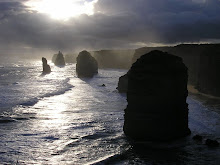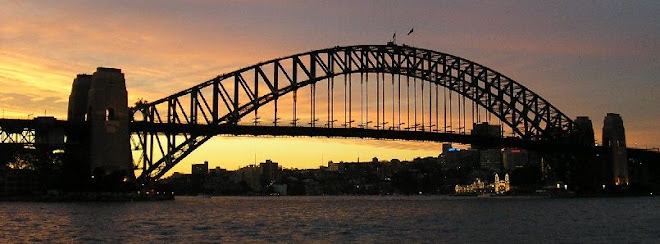 Just through studying some basic facts, I immediately discovered that this wonderful country was harnessing an awesome array of statistics। For example, at 3700km long and 4000km wide it is the largest and most isolated island on Earth. If I can just put this in perspective for you, imagine travelling repeatedly between Edinburgh and London six times, then add forty-degree heat and you have just crossed Australia. As a consequence, the country suffers from three major types of climate with tropics in the north, a desert in the middle and a relaxed maritime environment towards the south. The current day population is estimated at about twenty million, which is around a third of Britain’s. This however does not paint the whole story as, quite sensibly, a majority of these only reside in major cities consequently leaving about 98% of the country essentially deserted. To put it bluntly, Australia is in essence very big but very empty, at least in terms of its human population. If you get lost, which is likely, then you truly are the most buggered anyone can ever be. If of course you do manage to survive this barren desert and unbearable heat, the chances are your high spirits will become a somewhat lovely distant memory as the country's diverse collection of killer wildlife begins to nibble at your shoes. Believe me, there is not another place on Earth that boasts such a terrifying assortment of animals. For example, Australians have at their disposal, an abundant supply of great white sharks, crocodiles, funnel-web spiders, red-back spiders, the ten deadliest snakes in the world and the kangaroo (which I have heard on good authority can give you a nasty kick if you dare get too close). That, my friends, is quite an impressive arsenal I think you’ll agree. And I haven’t even mentioned the box jellyfish which is the most poisonous creature anywhere on the planet and lives in great quantity along the Queensland coast. In short, Australia is a country of enormous size packed full of creatures that actively seek human pray, but is depressingly void of any human assistance should you (god forbid) ever get a little ‘nip’ from a spider whilst out on a countryside walk. Ultimately, by visiting Australia you put yourself at the bottom of the food chain.
Just through studying some basic facts, I immediately discovered that this wonderful country was harnessing an awesome array of statistics। For example, at 3700km long and 4000km wide it is the largest and most isolated island on Earth. If I can just put this in perspective for you, imagine travelling repeatedly between Edinburgh and London six times, then add forty-degree heat and you have just crossed Australia. As a consequence, the country suffers from three major types of climate with tropics in the north, a desert in the middle and a relaxed maritime environment towards the south. The current day population is estimated at about twenty million, which is around a third of Britain’s. This however does not paint the whole story as, quite sensibly, a majority of these only reside in major cities consequently leaving about 98% of the country essentially deserted. To put it bluntly, Australia is in essence very big but very empty, at least in terms of its human population. If you get lost, which is likely, then you truly are the most buggered anyone can ever be. If of course you do manage to survive this barren desert and unbearable heat, the chances are your high spirits will become a somewhat lovely distant memory as the country's diverse collection of killer wildlife begins to nibble at your shoes. Believe me, there is not another place on Earth that boasts such a terrifying assortment of animals. For example, Australians have at their disposal, an abundant supply of great white sharks, crocodiles, funnel-web spiders, red-back spiders, the ten deadliest snakes in the world and the kangaroo (which I have heard on good authority can give you a nasty kick if you dare get too close). That, my friends, is quite an impressive arsenal I think you’ll agree. And I haven’t even mentioned the box jellyfish which is the most poisonous creature anywhere on the planet and lives in great quantity along the Queensland coast. In short, Australia is a country of enormous size packed full of creatures that actively seek human pray, but is depressingly void of any human assistance should you (god forbid) ever get a little ‘nip’ from a spider whilst out on a countryside walk. Ultimately, by visiting Australia you put yourself at the bottom of the food chain.But why does Australia differ so greatly from the rest of continents? Well, from the time it broke away from Pangaea like an overeager dog some 150 million years ago, the continent remained relatively untouched। Protected on all four sides by ferocious seas, the wildlife was left to simply flourish. Without any human interference, the country essentially became an extreme science experiment in which every animal was left to follow its own unique, evolutionary path. Evidently, this has produced some quite starling results. Having been finally discovered in 1770, this garden of spectacular growth was finally revealed to the world, but the country didn’t (as you may have expected) develop in a conventional fashion. In contrast, its short 300 year history is somewhat colourful to say the least. However, I was first interested in how this colossal piece of earth had remained hidden for all these years. I mean come on guys, this isn’t a question of finding in a needle in a haystack - it’s more like trying to find an elephant in your back garden. Some 300 years prior to Captain Cook’s famous voyage, scientists has predicted the country’s existence purely on the basis that it made the continental distribution throughout the world seem slightly more even. This is not to say that other explorers did not come close, alas, many came a lot closer than they would ever know. Let me just give you an example: A Dutchman named Abel Tasman set off in his quest to discover the unknown land. Unfortunately, he missed Australia itself but on his way round came across a smaller landmass, which he named Van Diemen’s Land and is now known as Tasmania. By definition, I believe this makes Tasman the unluckiest man in history. It’s like travelling 12,000 miles in a quest to discover England, landing on the Isle of Wight, then simply giving up and going home. Forget trying to find the elephant in your garden, this is like being struck in the face by its trunk but still not realising it’s there. Even if he had given up but left in a vaguely northern direction, he would’ve certainly noticed (if not smashed into) the Victorian coastline and happily constructed his windmill. Sadly for him though, as is so often the case when you’re the unluckiest man in the world, he simply sailed on by without a second glance as the chance of a lifetime slowly faded into a sea of missed opportunities.
In steps Captain James Cook, the son of farmer from Marton, North Yorkshire। Agreed, it is an unlikely source for such a formidable figure, but history it seems to have a habit of producing the unexpected. As part of a global science experiment, Cook, like many other explorers, had been sent across the world in order to gather important astronomical data from the transit of Venus. Conducting his from Tahiti, I doubt whether Cook was particularly enthralled by the prospect but it did nonetheless allow him to explorer the mysterious southern Pacific oceans after. In his ranks was an elite selection of fine scientists and sailors so any new discoveries could be analysed with expert precision. As a result, I imagine there was a great deal of excitement amongst the crew when they first spotted the south east corner of the Australian coast and built up speed towards its shores. And what a nice little bundle of joy they had waiting for them! When they first set eyes on the fantastic array of diverse nature spreading across this land, it must have seemed like an alien environment – either that or the limes had gone bad. Heading north, Cook and his crew then followed the shoreline, which allowed them to map a quarter of the country and complete the first ever east coast tour. Little did they know that 300 years later, young adults from around the globe would follow their pioneering foot sets on a daily basis and although their adventures are filled with a certain sense of drunken inevitability, they are nevertheless still just as exciting. I mean no disrespect to Cook's amazing achievement by comparing it to an all-inclusive holiday in Ibiza, but would merely like to point out the irony that such an historic voyage is now idolised by a group of people who, all in all, are considered slightly less remarkable. I too would become one of these pilgrims, but not until later in this trip. Anyway, having established that Australia was indeed massive and narrowly escaped a close run in with The Great Barrier Reef, the HMS Endeavour turned back cautiously and finally came to a halt at Botany Bay near Sydney.
So Cook had discovered the fabled south land and on 21st August 1770 Australia officially joined the British Empire's vast collection of faraway lands never to be spoken about again। The term 'discovered' should of course be used with caution in this instance - after all it seems slightly strange to suggest somewhere has just been discovered if there are already natives thriving on it. In addition, there is some strong historic evidence suggesting that Dutch explorers used the northwest corner as a nautical service station some 150 years prior to The Endeavour's famous voyage. Taking all this into consideration, it seems Cook didn't so much discover Australia (he wasn't even the first European to step foot on its shores), but was just the first to come home and shout about it. Surprisingly though, nobody really took much notice of him and the country was left to wilt like an unappreciated flower in the far corner of a greenhouse. To be perfectly honest though, this is quite understandable. After all, with such a huge empire at your disposal, why worry about some barren land which takes the best part of a year to get to? It had remained hidden from the world for the past few million years, so there was nothing to suggest it would have a sudden influx of tourists any time in the near future. However, following a gruelling defeat in America, Britain lost its colonies and with it, the largest prison at its disposal. Since you could be arrested for just about anything in those days, the country soon became over run with convicts and with nowhere left to send them, the government struggled to find a suitable solution. With all options seemingly running out, some bright spark suddenly remembered a distant land James Cook had mentioned 17 years ago. Finally, the forgotten country would be put to some use. Granted, it was as a prison but this decision marked a decisive moment in Australia's short but illustrious life. You have to hand it to the British leaders though - I mean, putting everyone from their ‘700 most wanted list’ into a large boat and sending them as far away as is humanly possible to a relatively unknown sterile land is a simply brilliant idea and one I would strongly encourage our government of today to consider.
As the British soon realised however, sending convicts to start a new colony can be somewhat of a tricky ordeal। For starters, the only real skill any of them actually possessed was stealing and, since they had all been caught, it appears they hadn't exactly perfected that either. With a severe lack of natural, survival skills the new settlers immediately found the barren land to be even more hostile than the eight-month sea journey they had just faced. Indeed, the most dangerous creature any of them had previously encountered was the wasp, so they weren’t really accustomed to working in an environment riddled with King Brown Snakes. Since convicts aren’t entirely famed for their agreeable nature also, I can’t imagine the town planning meetings were particularly productive affairs either. As a consequence, I think it’s fair to say that the development of this new world got off to a somewhat stuttering start and after only one year the homestead was abandoned leaving western life in the southern hemisphere looking bleak. However, if I were to take you to that very spot today, we would be standing directly in the middle one of the most prestigious and glorious cities this world has to offer. For these settlers were not just any settlers – they were the first residents of the beautiful miracle we now call Sydney.
It seems difficult to believe that the country could go under such a rapid development in such a short space of time, but this achievement is made all the more impressive when you consider that Australia remained a prison for about 100 years। Essentially, being sent there was seen as an undesirable lifetime infliction which everyone was desperate to avoid. But then, on April 7th 1851 its fortunes (and those for most of its residents) changed forever. Now, people were no longer sent to Australia by a judge but came flooding willingly in their hoards as the country was transformed instantly from a disagreeable, snake infested island to a land of wealthy opportunity. This was all thanks to Edward Hargraves who discovered that, not only did Australia have a little bit of gold scattered across its surface but it was pretty much bathing in the stuff. From that day forth, migrants stormed to the south pacific from all around the world with a pickaxe in one hand and a bucket for their cash in the other. Mining communities were being built on daily basis as this once uninhabitable country began its swift transition into the civilised world. Out of all the states, it was Victoria in particular that got the most attention with Melbourne’s population rising from 75,000 to approximately 500,000 in the ten years preceding 1851 in light of its somewhat healthy financial situation. Such was the interest in this emerging city, it attracted businessman and scientists alike with the Melbourne telescope being commissioned and completed as early as 1868. Unfortunately though, technology was not quite so advanced in Australia so the huge mirror had to be shipped from Europe only to discover on arrival that it had a large crack right down the centre. Not to disgruntled by this minor mishap, another was sent out, but since the project was already running over budget the commissioners decided to cut funding before the dome of the telescope could be completed. As any amateur astronomer will tell you, this effectively rendered the piece of equipment useless as any slightly breeze larger than a mouse cough would severely distort the image of the celestial body being tracked. Still, although this may have proven to be a disaster (and an expensive one at that) it does nevertheless demonstrate that Australia was quickly rising from its swampy origins and developing into a society rich in wealth, spirit and academia.
This trend of intensive migration is still being followed today. For example, a poll during 2000 found that only 4.5 million (not quite a quarter) of the country’s residents were actually Australian born. Far from annoy the inhabitants however, they are incredibly proud of this as it represents the foundations on which their great nation was built. Without this influx of citizens, their country may not have survived the savage British regime, but is now prospering in its diverse, cosmopolitan and multi-cultural society.





No comments:
Post a Comment